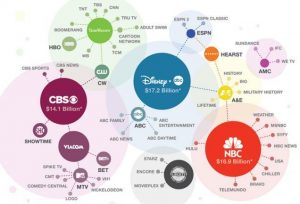[NPR] Debbie Baker thought she qualified for a federal program that helps teachers such as her, as well as nurses, police officers, librarians and others. The Department of Education program forgives their federal student loans if they make their payments for 10 years and work in public service.
But it turns out that her $76,000 in student loans didn’t get forgiven. Baker was finally told she was in the wrong type of loan. If she’d known that at the beginning, she could have switched loans and ended up qualifying. But she says nobody ever told her.
The tough message is that no one is in your corner but you. There are many who want to help you but they can do only so much. The bottom line is, in the jungle of politics, government programs, health, career, taxes and survival, one must be responsible for one’s self – but not by one’s self! This is especially true in these times of confusion and change.
It used to be if a person had a good physician and at least knew of a lawyer, the person’s interaction with society was manageable. Today, of course, a person requires specialists for dozens of relationships with society; most of these relationships are not petty and can have an impact on finances, insurance, property and taxes – to say nothing about education and medical expenses. Even taking a vacation often requires interacting with travel agencies.
To the reader, this means two things: 1- society is like a herd of elephants; they are big, cumbersome and even if they want to help out, it’s just as likely they will crush you. 2- surviving elephants requires special knowledge; it is a sad fact that one can no longer simply visit a specialist who will guarantee one’s wellbeing. Today, one must first do homework.
- Know very specifically what one wants to achieve. Have an idea about how the achievement will be accomplished.
- Educate one’s self about the subject; the Internet is a marvelous place to research details. So are libraries. Particularly learn about the responsibilities of those who will help. Ideally, talk with someone who has achieved the same goal.
- Just as Debbie made a mistake by not reading the fine print, most folks will overlook something that may be important. Fine print is everywhere today. A common error when investing is to not know the difference between a financial planner and a fund salesman. Financial planners were required by federal law to act in your best interest. Mariner said ’were’ because Donald had that rule removed early in his presidency; still, financial planners have one’s best interests at heart. Unfortunately, the larger investment firms stock up on fund salesmen; unless one is genuinely wealthy, one will not be serviced by a financial planner.
- Use a local bank and a local attorney. Let them know they will be counted on for all actions even if circumstances require additional specialists.
- When it comes to health insurance, it is a cutthroat business. Find neutral intermediaries to help with jargon and options. Some pharmacies offer services that will help make the best decision; there are quasigovernmental agencies (SHIIP, for example) that will help when making decisions about medical insurance. In matters of health finances, homework is required.
- Voting is the most important civic responsibility. Shortly before voting season, write to your elected officials to request promotional literature. Mariner cannot count the number of conversations with folks who not only didn’t know much but what they did know was attributed to the wrong party.
Just on a lark mariner decided to list within one minute as many specialists as one may need when engaging society:
Banker, attorney, financial advisor, primary care physician, optometrist, dentist, automobile mechanic, heating and air conditioning technician, proficient carpenter, proficient electrician, baby sitter, public school teacher, marriage counselor, psychologist, fitness center instructor, Tai Chi instructor, real estate agent and on TV, advice for everything from Doctor Oz to movie reviews.
The point is that today one cannot go it alone and must do homework as well. Make sure the right person and the right decision occur.
REFERENCE SECTION
‘1 Million Americans Will Be Shot in the Next Decade’
Video by The Atlantic
“I see more gunshot wounds as a trauma surgeon here in the United States per week than I did when I was serving in Kandahar, Afghanistan,” says Dr. Mallory Williams, chief of the Division of Trauma and Critical Care at Howard University Hospital. “There’s no question about it.”
In a new Atlantic short documentary, American Trauma: How the NRA Sparked a Medical Rebellion, Dr. Williams and other esteemed trauma surgeons explain how the severity—and, frequently, fatality—of gunshot-related injuries has galvanized the medical community to take action against gun violence. However, in many ways, their hands are tied: In 1996, Congress passed an amendment—lobbied for by the National Rifle Association—that prevented the Centers for Disease Control and Prevention from using federal funds to “advocate or promote gun control.” This includes conducting government-sponsored research on the effects of gun violence.[1]
Ancient Mariner
[1] For video see: https://www.theatlantic.com/video/index/593707/trauma-doctors/?utm_source=newsletter&utm_medium=email&utm_campaign=video-series-atlantic-documentaries&utm_content=20190711&silverid-ref=NDkwMjIzMjA1Mjg2S0


 e change and bring manufacturing back to the shores of the US. The nation needs a new Rosie.
e change and bring manufacturing back to the shores of the US. The nation needs a new Rosie.